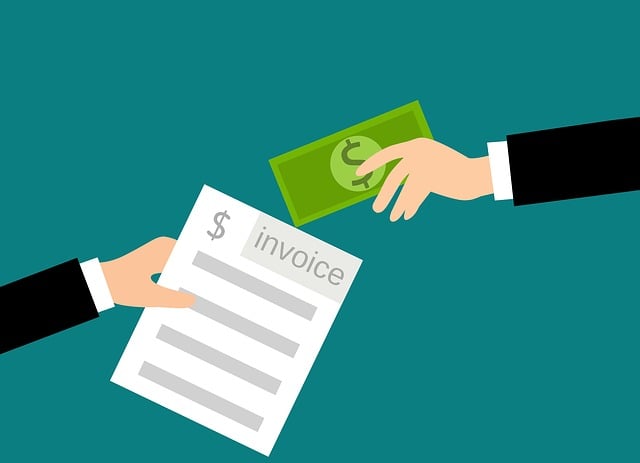Probate administration manages and distributes a deceased individual's estate, involving legal steps like will filing, asset gathering, debt payment, and final distribution according to the testator's wishes. Executors oversee this process, managing assets, settling debts, and distributing property to beneficiaries while ensuring compliance with laws and wills. Efficient administration requires record-keeping, communication, and transparency to minimize disputes. Strategic actions like professional involvement and digital document management streamline the process. Legal disputes may arise from will contests or discrepancies; probate litigation ensures fairness and protects rights when amicable resolution is unattainable.
Probate administration is a complex process that can be daunting for many families. This comprehensive guide aims to demystify this crucial phase, offering insights into every step of the journey. From understanding the probate process to navigating legal disputes and efficient asset management, we explore key roles and strategies. Learn how executors and beneficiaries play vital parts in settling estates, and when litigation might be necessary. Master effective tactics for smooth probate administration, ensuring a smoother transition for all involved.
- Understanding Probate Administration Process
- Role of Executors and Beneficiaries
- Managing Assets and Debts During Probate
- Common Legal Disputes in Estate Settlement
- Strategies for Efficient Probate Administration
- When Probate Litigation Becomes Necessary
Understanding Probate Administration Process

The probate administration process is a legal procedure designed to manage and distribute an individual’s estate after their passing. It involves several key steps, including the filing of a will or petition in court, identification and notification of heirs, gathering and managing assets, paying debts and taxes, and ultimately distributing the remaining property according to the testator’s wishes. This intricate process requires meticulous attention to detail and adherence to legal requirements to ensure fairness and legitimacy.
Understanding probate administration is crucial for both individuals seeking to streamline their estate planning and those involved in resolving legal disputes related to an estate. By familiarizing themselves with this process, individuals can make informed decisions when drafting wills, designating beneficiaries, and appointing executors or trustees. This proactive approach helps avoid potential pitfalls and ensures that their wishes are accurately carried out upon their passing.
Role of Executors and Beneficiaries

Executors play a crucial role in probate administration, being responsible for managing the deceased’s estate according to their wishes as outlined in the will. Their duties involve gathering and valuing assets, paying debts and taxes, and distributing remaining property to beneficiaries. The executor must act with care and diligence, ensuring all legal requirements are met during what can be a complex and emotional time for families.
Beneficiaries, on the other hand, are the individuals or entities who stand to gain from the estate. They may include family members, charity organizations, or even the executor themselves. Understanding their rights and expectations is vital. Beneficiaries have a voice in the process, often providing input on asset distribution and ensuring the executor acts in their best interests as outlined in the will.
Managing Assets and Debts During Probate

During probate administration, one of the primary tasks is managing the deceased’s assets and debts. This process involves a thorough inventory of all property, both tangible and intangible, to ensure its accurate valuation and distribution according to the will or applicable laws. The executor or personal representative plays a crucial role in this aspect, overseeing the collection, protection, and disposal of assets to pay off any outstanding debts, taxes, and expenses associated with the estate.
Efficient probate administration requires meticulous record-keeping and clear communication among all parties involved. This includes maintaining detailed accounts of asset dispositions and debt settlements, ensuring transparency and compliance with legal requirements. By carefully managing these aspects, the executor can facilitate a smooth transition of assets to the designated beneficiaries, minimising potential disputes and ensuring the deceased’s wishes are respected.
Common Legal Disputes in Estate Settlement

In the process of probate administration, various legal disputes can arise during estate settlement. These conflicts often stem from differing interpretations of wills, trust agreements, or beneficiary designations. Common disputes include contested will validity, where the legitimacy of a will’s signature or mental capacity of the testator is questioned. Another frequent issue is disputed beneficiaries, where parties disagree on who should receive assets based on the terms of the will or trust.
Additionally, inheritance rights and distribution of assets are frequently debated. Beneficiaries might challenge the fairness of the distribution, while creditors may attempt to claim outstanding debts from the estate. These legal disputes can complicate probate administration, leading to prolonged court battles. Efficient probate administration requires addressing these issues promptly and fairly to ensure a smooth transition of assets to legitimate beneficiaries.
Strategies for Efficient Probate Administration

Efficient probate administration relies on several key strategies. One of the most important is early involvement by experienced professionals, including attorneys and accountants, who can guide executors or administrators through the complex legal and financial aspects of the process. This team should focus on promptly gathering and organizing all necessary documents, which not only streamlines subsequent procedures but also minimizes potential errors or omissions that could delay the estate’s distribution.
Additionally, establishing clear communication channels and implementing efficient document management systems are vital. Regular updates between the executor/administrator, beneficiaries, and other stakeholders ensure everyone is informed about the probate’s progress. Digital tools for document storage and sharing can significantly enhance this process, making it easier to access records when needed while maintaining confidentiality and security.
When Probate Litigation Becomes Necessary

When complex issues arise during probate administration, legal disputes may ensue. These conflicts can stem from various factors, including contested wills, discrepancies in estate value, or disagreements among beneficiaries. Probate litigation becomes necessary when parties involved are unable to resolve these matters amicably. For instance, if a will’s validity is questioned, or if there are allegations of undue influence or fraud, legal action may be required to determine the will’s legitimacy and protect the rights of all parties involved in the probate process.






